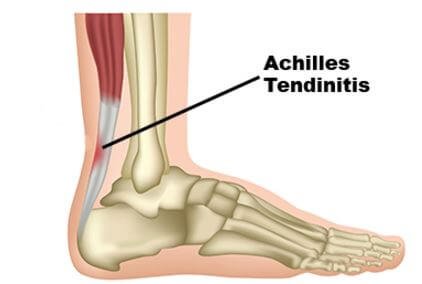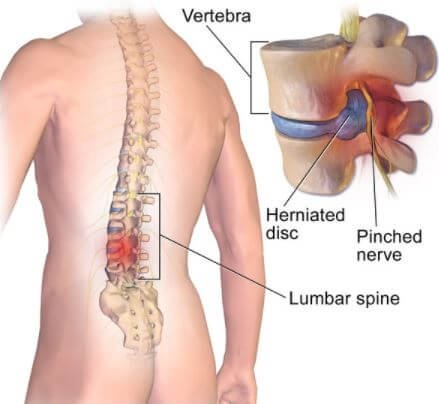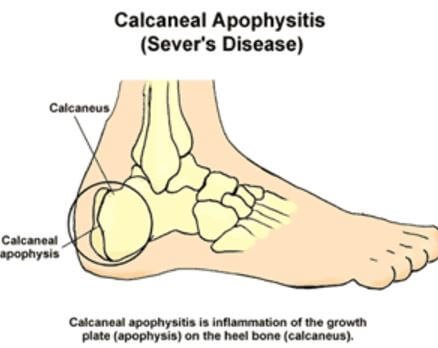What is Heel Pain?
Heel is the biggest bone in the foot is the heel which when affected can influence how you walk or stand. Heel pain is an agonizing pain felt when the affected heel is being used. If you injure or overuse your heel, the pain you’ll feel can range from mild to crippling. [2, 3]

The pain is normally severe when you first take a step after a duration of being immobile or when you wake up in the morning. Walking can reduce the pain but it can also worsen after walking or standing for a long period of time. A heel pain can make someone limp or have an unusual style of walking.

Causes
Overuse of the heel is most often the cause of heel pain among other numerous causes. It’s crucial to make the correct diagnosis of the cause of your pain so you can get the appropriate treatment. If you experience pain, common causes of heel pain include:
Heel spurs
This condition develops when the plantar fasciitis and the muscles of the foot are continuously stretched or strained causing pieces of the lining to detach, particularly in joggers or runners and in obese people.
Plantar fasciitis
This occurs when the tendinous tissue that connects the heel to the ball of the foot becomes blistered.It can also occur from wearing poorly fitting shoes.

Anyone can develop this condition but it’s common in pregnant women, runners or joggers, diabetic people, tennis and volleyball players, obese people and people who take part in aerobics and stair climbing.
Achilles tendinitis
It’s triggered by overuse of the Achilles tendon, which runs along the back of the heel and also poorly fitting shoes can cause it. It’s common in frequent dancers, professional athletes and frequent joggers and runners.

Pump bump
This condition affects the back of the heel by causing a painful enlargement, particularly when one wears shoes that strain the back of the heel.
Tarsal tunnel syndrome
This is when a large nerve in the back of the foot becomes pinched or hooked causing heel pain.
Trapped nerve
If a small nerve is compressed as a result of a sprain, injury or a fracture, it can cause swelling, numbness, pain, tingling, or discoloration in the heel area.

Bursitis
Heel bursitis causes pain in the middle of the underside of the heel. This can worsen when one stands for a long time and the pain can get severe at the back of the heel if you bend your foot up or down.
Calcaneal apophysitis
This condition comes about when the center of the heel becomes inflamed from increased athletic activity or new shoes causing tenderness and pain at the back of the heel and is common in children.

Local bruises
Heel bruises may also cause mild swelling, pain, discoloration of the skin and soreness.
Symptoms
Before treatment is directed the cause of heel pain must be specified. Here are some symptoms of heel pain:
- Pain in your heel and fever
- You cannot stand on your toes
- Agonizing pain accompanied by swelling near your heel
- Pain while walking or standing
- When you can’t walk properly or bend your foot downward
- Pain in the arch of your foot
Diagnosis
Your doctor will examine you after you’ve described your foot symptoms and given him or her details of your pain, lifestyle, and medical history.All through this procedure your doctor will rule out any likely causes for your heel pain apart from plantar fasciitis.
Other examinations include:
- X-rays or other imaging modalities might be used to differentiate the various types of heel pain.
- A neurological examination may be done to evaluate muscles and nerves sensation, reflexes and strength.
- An examination can be done to evaluate your gait. While barefoot your doctor will ask you to stand still and to walk to enable him or she examine the way you move your feet when you walk.
Treatment
The treatment of heel pain is always based on the actual causes of the pain. Start your treatment plan after a clear diagnosis of your heel. Here is some common treatment of heel pain:
- Medications such as ibuprofen can be prescribed to decrease inflammation and pain.
- Resting normally helps reduce agonizing pain and allow the inflammation to calm down. Reduce any prolonged physical activities and let your heel rest.
- Stretching exercises can help ease pain and relax tissues around the heel bone. This helps with recovery.
- Icing helps reduce inflammation and contain the heel pain.
- Wear supportive shoes with a good arch supportand a little bit raised heel to help decrease stress on the plantar fascia.
- Surgery can be considered if a patient doesn’t respond to nonsurgical treatmentafter a few months. You and your surgeon can weigh in the surgical options and decide which method would be most favorable for you.
Complications
- After a heel surgery, one could experience persistent heel pain, permanent numbness of the area, nerve pain and with plantar fascia release one could experience stress fracture, biomechanical instability, tendinitis and foot cramps.
- Heel pain can influence your daily activities and even cripple you. It could also affect how you walk and you could possibly lose your balance and fall, therefore, exposing you to other injuries.
Homecare
Your doctor or health care provider may advise you on other treatment options based on the cause of your heel pain. Here are some homecare tips you could be advised to follow:
- Wear shoes that fit properly.
- Always get as much rest as you can.
- Put on night splints.
- Using crutches will help take the weight off your feet.
- Use ice on the affected area. Apply ice twice or more daily for 10 to 15 minutes for several days.
- Take ibuprofen or acetaminophen to help relieve the pain.
- Use shoe inserts, felt pads or a heel cup in the heel area.
- Assist your child in stretching his or her calf muscles and Achilles tendon to release any tightness within the tissues of a growing heel bone.
Reference List
- http://www.mayoclinic.org/symptoms/heel-pain/basics/causes/sym-20050788
- www.nhs.uk/conditions/heel-pain/Pages/Introduction.aspx
- www.healthline.com/symptom/heel-pain
- Heel pain. Available at https://www.foothealthfacts.org/conditions/heel-pain-(plantar-fasciitis)
- https://www.verywell.com/heel-pain-information-and-causes-2549378
- https://heelthatpain.com/heel-pain/
- https://www.drugs.com/health-guide/heel-pain.html
- https://medlineplus.gov/ency/article/003181.htm
- Heel pain – www.medicalnewstoday.com/articles/181453.php?page=2
- Heel pain Causes & Treatment at www.webmd.com/pain-management/heel-spurs-pain-causes-symptoms-treatments

MlX
Drm
Bid,
*Aurea. Torres
BEd